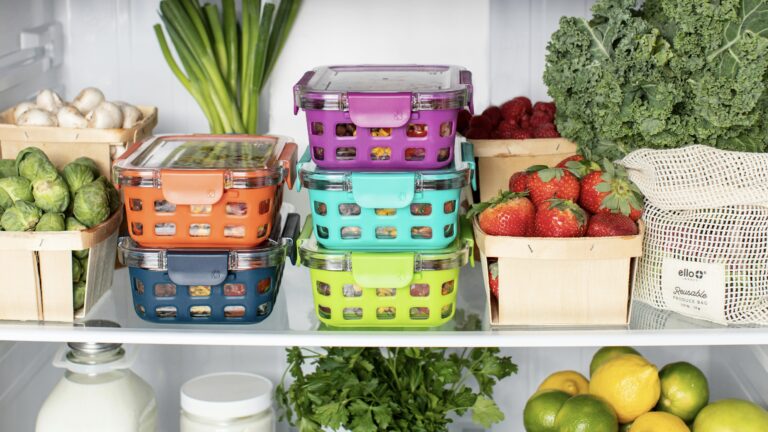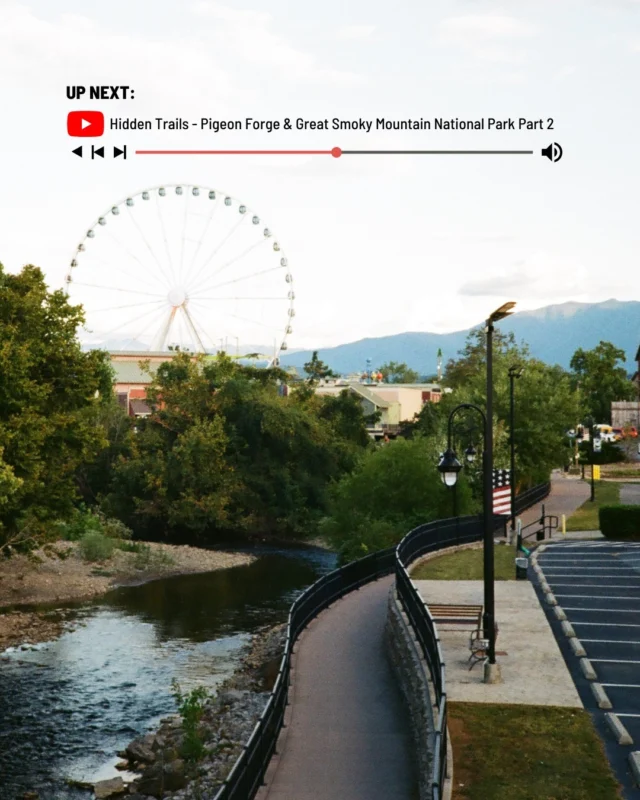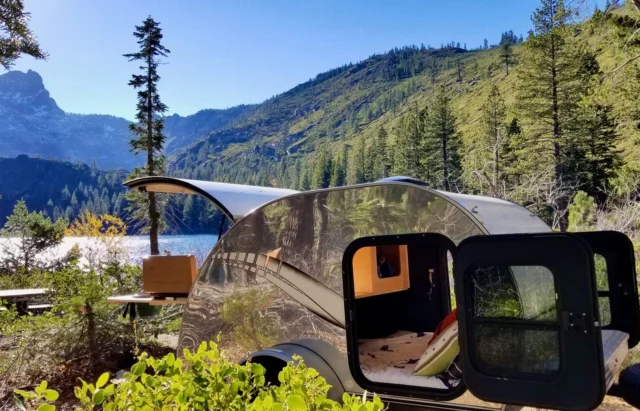
One of the best things about an RV is the fact that it gives campers access to key household appliances during their camping adventures. One of the most useful appliances? The RV refrigerator!
Of course, you will need to know how to use and take care of your RV fridge and may even find yourself needing to replace it at some point. This guide addresses all of these things and more.
This post contains affiliate links. RVshare may receive compensation if you make a purchase after clicking on a product link.
RV Refrigerator Types
There are three main types of RV refrigerators: absorption refrigerators, compressor refrigerators, and residential refrigerators.
- Absorption refrigerators are what you find in most RVs. These use evaporation and condensation caused by chemical reactions to keep cool and can be run on AC power, propane, and sometimes even DC power.
- Compressor refrigerators work faster and often better than absorption refrigerators. That said, they can not run on propane. Some compressor refrigerators that are designed specifically for RV use can run on both AC and DC power, but many only run on AC power.
- Residential refrigerators are just compressor refrigerators that were designed for residential use. These are usually a different size than RV refrigerators and they can only be run on AC power, meaning you are limited to parking in spots with shore power or running a generator constantly.
RV Refrigerator Brands
There are three main companies that specialize in RV fridges – you can get a RecPro, Norcold, or a Dometic RV fridge. Most RV forums agree that both are similar and you can find a quality fridge from any of these companies.
Best Rated RV Refrigerators
The following RV refrigerators get awesome reviews. If you aren’t sure where to begin, we recommend taking a look at these top picks.

Buying an RV Fridge
In some cases, all the maintenance and DIY troubleshooting in the world won’t fix your RV fridge. In this case, you’ll need to look into buying a new RV refrigerator. Here’s what you need to know about shopping for a new RV fridge.
What to Look for in an RV Refrigerator
First, be sure to consider your personal wants and needs. Preferences will vary from one RVer to the next and will depend a lot on your camping style.
- Will you be dry camping? If so, you need a propane and/or DC power function.
- How much space do you require in your fridge? A large family that likes to cook might want a roomy residential fridge.
- How big is the space where the fridge will live? Make sure you get accurate measurements before you buy anything!
Measuring For Your Fridge
Okay, so knowing how big your RV fridge space is is definitely important, but how do you determine that? The best way is to remove the current fridge and measure the space it is living in.
- First, turn off the propane, electric controls, and battery.
- Unplug the main power, then turn off your generator and house battery.
- Locate the access panel on the outside of your RV to access the back of your fridge.
- Disconnect the supply line and 12V wires.
- Go back inside to unscrew the fridge. Remove any caulk holding it in place and gently pull it out.
- Once the fridge is pulled out, use a measuring tape to determine the height, depth, and width of the refrigerator space.
Absorption fridges should fit fairly snug in the space. Residential refrigerators will need a couple of inches in the back for air circulation. Some also require circulation space on the sides.
In some cases, it may be possible to search for the dimensions of your current RV refrigerator in order to determine how much space you have without removing the old unit.
The Best RV Refrigerator Options
The best RV refrigerator for you is the one that suits your needs, meaning the answer varies for different people. Below are some questions to ask yourself to determine which fridge might work best for you.
- Do you boondock often, making a propane fridge a requirement?
- Do you need a lot of space to store food, making a compressor fridge with more interior space a better option?
- How hot does it get where you live? Do you need the better cooling power of a compressor fridge?
- Do you prefer to have extra cabinet space? Would a smaller-than-normal fridge be okay?
- How do you feel about a chest-style fridge?
- Do you have room for a larger, two door fridge?
Where to Buy an RV Fridge
You can, of course, talk to your RV dealer and get a refrigerator that way. You can also purchase them directly from the manufacturer via their website. Some RV refrigerators can even be purchased from Amazon and other online retailers like Camping World.
Another option? You can buy used through Craigslist, Facebook Marketplace, or even a local RV dealership. Buying used can save you a ton of money, so it might be worth looking around.
Tips for Buying Used
When buying used, check for a few key things to make sure the fridge operates properly.
- First, make sure the fridge has been turned on for at least 6 hours when you go to check it out.
- Take a thermometer and make sure the fridge is 36 degrees or cooler. The freezer should be 10 degrees or cooler.
- Check the seals to make sure they keep cold air inside the unit.
- Also, check for smells. It can be impossible to get rid of bad fridge smells.
Refrigerator Usage Tips
- Turn it on early – Your fridge will need at least 6 hours to fully cool down. Turn it on the night before you plan to use it.
- Start with cold stuff – Loading the RV refrigerator with cold items will help it cool down faster.
- Don’t overload it – It’s important to leave space for cool air to move between items. For this reason, you’ll need to make sure you don’t overpack your camper fridge.
- Install a fan – If you plan on camping in very hot weather, you will want to purchase and install a small refrigerator fan to help keep your unit cool.
- Keep it shut – Opening the fridge and freezer doors often will make the unit work harder to stay cool, so keeping the doors shut as much as you can is the way to go.
- Check the seals – Loose or dirty seals can also let cool air escape. Check your seals regularly and clean and replace them as needed.
- Take time to thaw – Trailer and motorhome refrigerators and freezers are not frost-free. If you’ll be using yours for an extended period of time, make sure to take time to thaw them out from time to time.
- Stay level – RV refrigerators can be ruined if run while unleveled, so be sure you’re always level while parked. Check for obstructions — Your refrigerator needs adequate ventilation to cool properly. Regularly check the back and front vents for obstructions (such as leaves, dirt, and debris) and remove anything you find there.
- Change the settings – You may find that you need to change the settings based on the weather. For instance, hotter weather may call for a cooler setting. Meanwhile, cooler weather will not require the fridge to work as hard, meaning a lower setting should be fine.
How to Prep Your Fridge for RV Storage
Long-term RV storage can sometimes cause issues with the operation of your RV refrigerator, but you can avoid these problems by properly prepping the fridge.
- Always make sure the fridge is completely turned off before putting your coach in storage.
- Close off and disconnect the propane tank valves.
- Remove any food and ice.
- Thaw the fridge and freezer fins, catching any excess water with a towel and making sure to dry the inside of the unit well.
- Prop open your refrigerator doors while storing.
Before heading out on your first trip after storing the rig for a while, be sure to follow the steps below to get your RV fridge ready to go.
- With the fridge off, remove the outside vent cover that allows for back access.
- Check the connections.
- Now locate the burner, the flue is directly above. The baffle is inside the flue. Use an air compressor to blow air into the flue.
- Continue to use the air compressor to remove dust and debris that has built up around the compartment.
- Turn the fridge on at least 6 hours before you head out.
RV Refrigerator Troubleshooting
Sometimes RV refrigerators give us trouble. In this case, you will want to do some RV fridge troubleshooting to get to the bottom of the problem.
Here are a few things to check.
- Make sure your RV is level. Absorption refrigerators cannot work properly on an unlevel surface.
- If you are running the fridge on propane, make sure you have fuel.
- Check fuses, breakers, and switches.
- Check the vents for obstructions that may be causing the fridge to heat up.
- Move the thermistor to the part of the fridge that gets cold last.
Your RV fridge is one of the things that helps keep you comfortable as you travel and explore. Make sure to use the tips above to find the right fridge and keep it in tip-top shape for all of your adventures!






